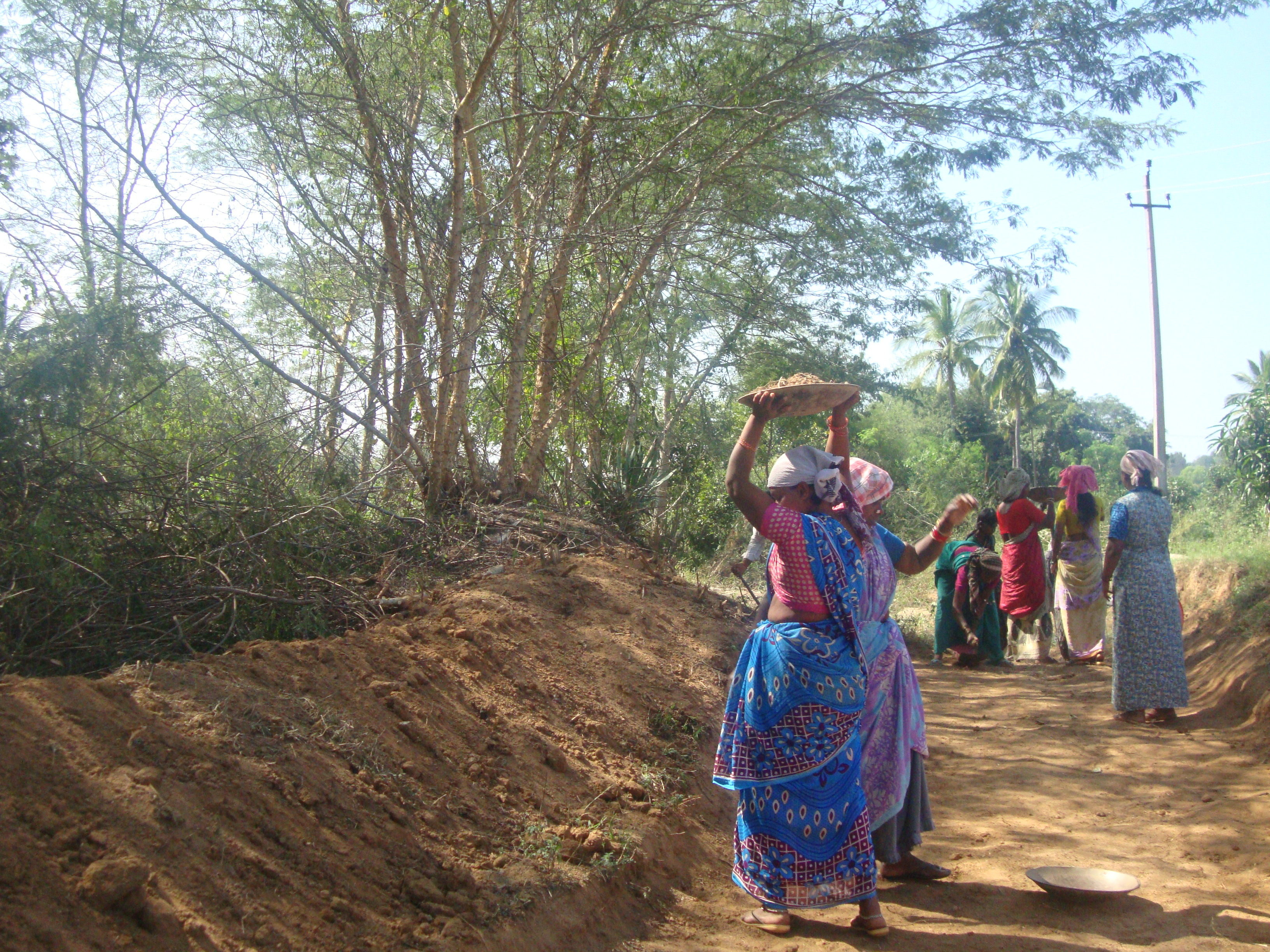
JOURNEY
The origin and growth of a rural women’s organization
The origin and growth of a rural women’s organization
HOW WE EVOLVED
Grameena Mahila Okkuta (GMO) is the federation of 330 rural women’s SHGs in 170 villages of Mulbagal, Kolar, Srinivasapur and Bangarpet taluks of Kolar District in south Indian State of Karnataka. It has 6000 members.
Promoted in 1994 by Grama Vikas, a rural development organisation working in Kolar District, Grameena Mahila Okkuta,meaning rural women’s federation, was registered as a society in 1997. It is now an independent entity.
By mid-90’s, the need to give a formal structure to the organization had become pressing. The organization had not only become cohesive, but it had also acquired an identity. For effective functioning and wider and greater impact of its activities, GMO was registered as a society in 1997. Since then, it has grown and is now recognized the largest and most influential women’s organization in Kolar District. It has helped in setting up 40 similar federations in other districts. GMO receives scores of guests every year, both from other federations and academics on learning visits.
GOAL
The federation’s goal is to facilitate social, political and economic empowerment of rural poor women by building self-managed and sustainable people’s institutions.
OBJECTIVES
- Facilitating village level SHGs for effective and sustainable functioning
- Addressing issues related to social, political and economic rights of women
- Developing leadership among members through capacity-building for managing institutions
- Facilitating regular interaction between representatives of SHGs at Cluster and Federation through meetings and conferences
- Networking with other women’s organizations in order to strengthen gender solidarity
- Networking with like-minded organizations for advocating pro-rural poor changes in public policies and programmes
- Bringing about changes in attitudes of men towards women
OPERATIONAL ENVIRONMENT
Grameena Mahila Okkuta is an organisation of rural poor women. It works in an environment of constraints including acute poverty, a traditionally male-dominated society that is resistant to the idea of women empowerment, low literacy among women, lack of capacities and skills, women bearing a large share of the domestic and farming chores as well as livestock care, lack of market opportunities, corruption in official agencies, hospitals and educational institutions, and a political atmosphere lacking in transparency and accountability and recurring droughts that threaten the fragile Food Security in the families of its members.
THRUST AREAS
The main function of GMO is rights-based advocacy. GMO educates its members on their rights and issues, facilitates their capacity building and organizes them to take up issues. Among the awareness campaigns it has taken up include alcoholism and environment issues such as restoration of traditional water-harvesting structures (tanks).
GMO has also been organizing theme conferences on issues, with the participation of large numbers of women. Major government personalities and officials are invited to the meetings where women discuss issues and present theme papers outlining problems and solutions as they perceive them. Representatives from other NGOs and women’s federations and the media are invited to attend the conferences, six of which were organised in 2000-01.
GMO and its affiliate SHGs are now being increasingly viewed as articulators of views of not only rural poor women, but also entire communities. While GMO addresses issues concerning the livelihoods of rural poor in general and those live in Kolar District in particular, its member SHGs deal with, and in most able to resolve, the problems facing the communities.
GMO has been in the forefront of socio-economic campaigns in Kolar District since its inception, against alcoholism, corrupt practices in hospitals, official apathy towards rural problems, and in favour of environment regeneration through restoration of water harvesting structures such minor irrigation tanks. GMO has been conducting these campaigns through demonstrations, jathas (groups of GMO members visiting villages to create or raise awareness through people-to-people communication), lobbying with politicians and officials and conducting advocacy through the media.
STRUCTURE
GMO has an elected structure comprising a General Body with two representatives from each SHG. The General Body lays down policy and direction for the Okkuta and elects a Governing Board that forms the leadership of the Okkuta. The General Body also elects a team of office-bearers including a President, a Vice-President, Secretary and Treasurer. Elections at all levels are regular and leadership is rotated among members in order to widen and deepen the leadership of rural women.
Governing Board: The Governing Board comprises of 11 members and 21 invitees from Clusters. Elected for a two-year term, it meets once in a month and takes policy decisions during the period between two General Body meetings. The meetings discuss and decide on policies of GMO, programme planning & design, financial matters and administration.
